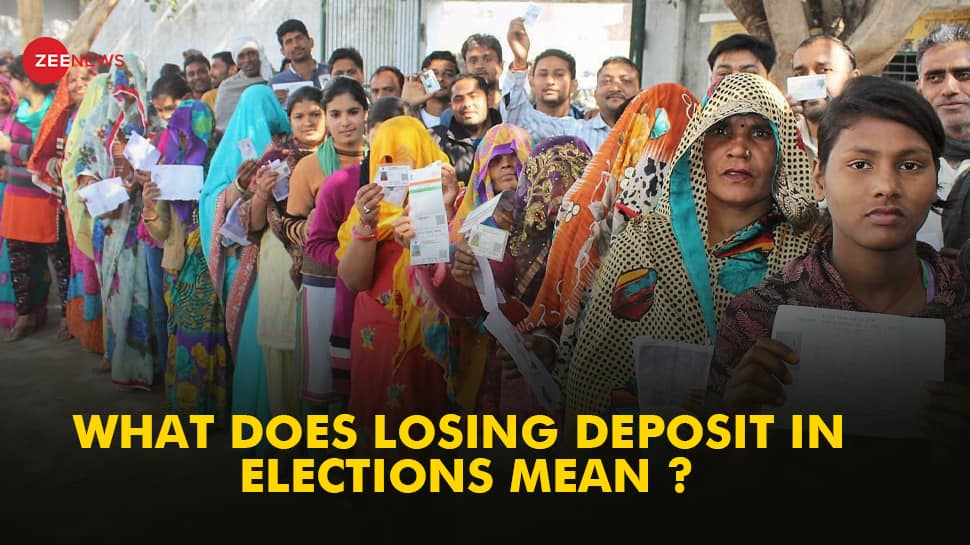NEW DELHI: In the landscape of Indian elections, a critical facet that every aspiring candidate must navigate is the election deposit. This financial prerequisite is a sum that candidates must pay to the electoral authority to officially enter the race for elected positions, ranging from legislative seats to the presidency. The primary rationale behind this deposit is twofold: it aims to discourage non-serious or 'fringe' contenders and streamline the electoral contest to those with a tangible support base. The fate of this deposit hinges on the candidate's performance at the polls; securing a specified percentage of votes ensures the return of the deposit, while failure to do so leads to its forfeiture.
Purpose And Significance
Dubbed as the ''security deposit'' in electoral parlance, this amount is pivotal for maintaining the sanctity and seriousness of electoral contests. The Election Commission of India, entrusted with the mammoth task of overseeing free and fair elections across the nation, enforces this deposit as a measure to filter genuine candidates from the rest. It's a step towards ensuring that only those with a legitimate intent and support base venture into the electoral arena.
Variability Across Elections
The security deposit isn't a one-size-fits-all figure; it varies significantly across different types of elections, from local panchayats to the presidential race. This variance is reflective of the diverse scales and stakes of different elections within India's democratic framework.
Quantifying The Deposit
The stipulated amount for the security deposit differs based on the election type and the candidate's category. For Lok Sabha and Assembly elections, the Representation of People Act, 1951 sets the deposit amounts, which are lower for SC/ST candidates in a bid to encourage broader participation. Presidential and Vice-Presidential candidates face a uniform deposit requirement, irrespective of category.
Lok Sabha Election Deposits: INR 25,000 for general candidates and INR 12,500 for SC/ST candidates.
Assembly Election Deposits: INR 10,000 for general candidates, with a halved amount for SC/ST candidates.
Presidential and Vice-Presidential Elections: A flat deposit of INR 15,000 for all candidates.
Criteria For Forfeiture Of Security Deposit
A key aspect that every candidate watches closely is the criteria for the forfeiture of their deposit. The Election Commission mandates that a candidate's deposit is forfeited if they fail to secure at least one-sixth (approximately 16.66%) of the total votes cast in the constituency. This rule is uniformly applied across all elections, serving as a benchmark for assessing a candidate's electoral viability.
Conditions For Refund
On the brighter side, several conditions allow for the refund of the security deposit. Achieving more than the stipulated percentage of votes, the candidate's demise before polling, or withdrawal of candidacy are among the scenarios that lead to the deposit's return. Importantly, winners are always refunded, regardless of their vote percentage.
Historical Context
The dynamics of security deposits have evolved over the years, with a notable proportion of candidates losing their deposits in both the first Lok Sabha elections and the 2019 elections. These instances highlight the competitive and challenging nature of India's electoral battles, underscoring the significance of the deposit both as a regulatory measure and a gauge of electoral support.
Legal Framework
The Representation of People Act, 1951, provides a comprehensive legal basis for the administration of security deposits, detailing the conditions for their return or forfeiture. This legislative framework ensures a standardized approach to handling deposits, reinforcing the electoral system's integrity and fairness.
As India continues to navigate its complex electoral landscape, the concept of 'Jamanat Jabt' or forfeiture of the security deposit remains a crucial element, serving both as a deterrent against frivolous candidacies and a testament to the vibrancy of Indian democracy.
















